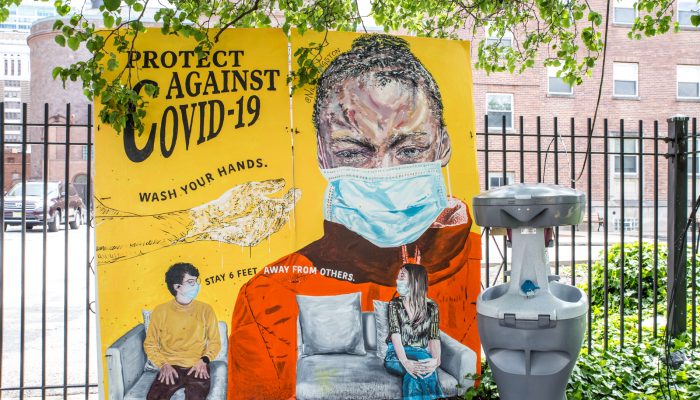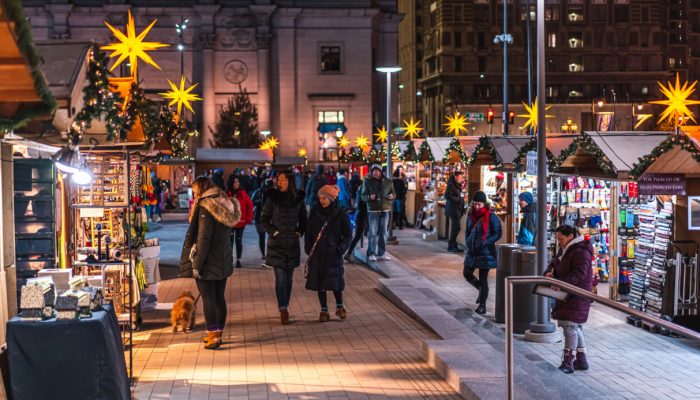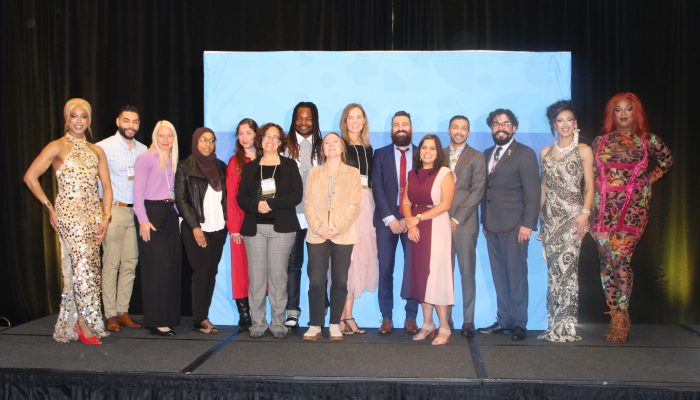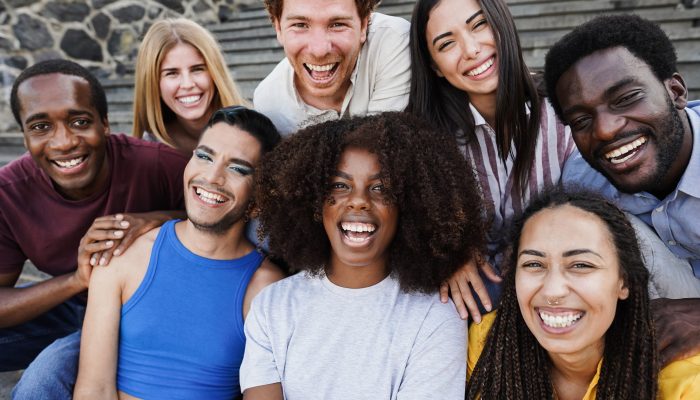There is no evidence that heat or sunny weather helps stop the spread of COVID-19, so it’s important to continue to follow the advice and guidance of the Philadelphia Department of Public Health and other health officials. Although our summer may look different this year, here are some tips for staying safe while dealing with summer heat during COVID-19.
Wear a mask that is easy to breathe in
Bring a mask or face covering with you when going outside, and make sure to wear it when you’re around other people. Try to choose a mask that is lightweight, made of cotton or cotton/poly blend, and is easy to breath in.
However, cloth face coverings should not be placed on young children under age 2, anyone who has trouble breathing, or anyone who is unable to remove the mask without help.
Someone who is actively having trouble breathing such as an asthma attack should take off their mask in a place at least six feet from others and use their asthma medication or get medical attention if needed.
People with asthma or other breathing problems are at higher risk from COVID-19 infection, so they should do their best to wear a mask to protect themselves and others and make sure to maintain social distance and avoid gatherings.
Try different types of masks to find one that is comfortable to wear. The type of cloth and the number of layers makes a big difference. Paper masks may be easier for some people to tolerate than cloth masks. A face shield is also an option for someone who can’t tolerate any mask.
Learn more about why, when, and how to wear a mask.
Find safe activities for children and youth
Things will look different for summer 2020, but there will still be plenty of ways to keep kids and families busy, engaged, safe, and healthy. Learn more about summer programming and opportunities.
Check on neighbors and loved ones, from a distance
Check in with your neighbors, especially those who are more likely to get very sick due to the heat, like older adults who live alone. Exchange phone numbers so you can check-in from a distance.
Make sure they’re drinking water, staying cool in their homes, and know to call 911 if they start experiencing heat stroke symptoms.
If they have any questions about heat, they can call the Philadelphia Corporation for Aging’s Helpline at 215-765-9040.
You can also help people in Philadelphia stay cool and safe this summer by spreading the word on social media and through your other networks. Visit our Facebook page to download helpful graphics in multiple languages.
Go outside, safely
On very hot days, being outdoors may be safer than being indoors if you don’t have air conditioning. If you have to leave your home, remember to wear a mask, drink cool water, and stay six feet away from others.
Please DON’T open fire hydrants—you could damage the hydrant, which would endanger residents and firefighters if there is a fire nearby.
If you visit a park, find a shaded spot to cool down and try to avoid large crowds. Try not to touch benches, water fountains, or other high-touch surfaces. If you do, make sure to bring hand sanitizer and use it afterwards. Learn more about how to use our parks and public spaces safely.
Get utilities assistance
To help avoid the spread of COVID-19, Philadelphians should still plan to stay home as much as possible this summer. That means you are likely going to be spending more time in your house than in past summers, so your utilities bills may be higher. There is help available.
LIHEAP
With Mayor Kenney’s support, Governor Wolf announced that the Low Income Home Energy Assistance Program (LIHEAP) funding will be made available to help residents with their electricity costs. Learn about LIHEAP and household income eligibility or fill out the LIHEAP Recovery Crisis application.
PECO
Customers who are challenged to pay their energy bill should contact PECO customer care as soon as possible at 1-800-494-4000. PECO will work closely with customers to waive late payment fees, avoid having their service shut off, discuss reconnections, and determine eligibility for assistance programs. Learn more about options available from PECO.
Philadelphia Water Department
In a continued effort to provide support during the COVID-19 health emergency, The City of Philadelphia extended its water shutoff protection measure. Both residential and commercial water customers won’t face shutoffs for non-payment of bills until July 10.
The Philadelphia Water Department (PWD) and the Water Revenue Bureau have also suspended all penalties and late fees for unpaid water bills until further notice. Learn more about what you can do if you can’t afford your water bill.
PGW
PGW is suspending non-payment terminations and waiving new late payment charges. This termination freeze will remain in place until further notice. Customers are encouraged to make arrangements to stay current on their bill during the freeze to prevent termination once the moratorium is removed. Learn more about PGW assistance programs.
Additional state and federal aid
If you’ve lost a job or wages due to COVID-19 there are various state and federal aid funds you may be eligible to receive. Learn more about benefits that may be available to you.
Lower your energy costs
The Office of Sustainability has tips for lowering your utility bills such as using dark curtains to block out sunlight, unplugging appliances when not using them, and hanging a sheet over a doorway to keep cold air in one room. Learn more ways to reduce your home’s energy use.
Follow our other #StayCoolPHL tips
There are plenty of tips and tricks that you can follow to beat the heat. Learn how you can keep your family, friends, and pets safe this summer.
And don’t forget to read up on the symptoms of heat-related illness. Heat stroke symptoms can include a high body temperature, unconsciousness, and nausea.
If you experience these symptoms, don’t hesitate to seek medical attention. Our city’s hospitals are ready to accept patients who need help. Learn more about preventing heat-related illness.




